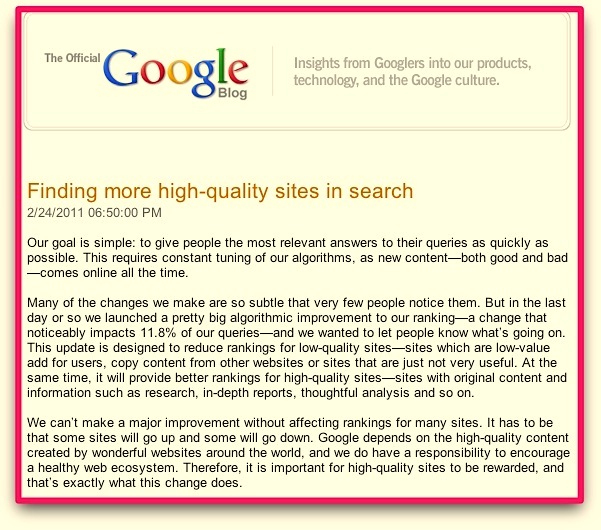A comment today on the Is this how Shaun Stenning handles a request for a refund? thread implies the dissatisfaction with his snipr ‘product’ is widespread:
Re: SNIPRscam’ Hi, is anyone else in Melbourne/Australia interested in forcing a refund from Shaun Stenning for his Snipr scam? It seems that asking him nicely doesn’t work. I’ve also emailed the crew at Empowernet, who hosted the internet event he was spruiking at, but no reply there either. I’m asking them for a transcript of his presentation so I can take to ASIC as proof of his lies.
If we can get a few of us making a complaint, it would hold more weight.
Please email me at sniprrefund@gmail.com if you’ve been scammed by snipr as well.
I personally haven’t seen evidence to enable to me to fairly and robustly conclude ‘snipr is a scam’ as this poster and others claim — so I don’t describe it in those terms — but there are plenty of examples in discussion here at thePaepae.com of apparent customer dissatisfaction.
I guess the case is mounting against those who [apparently] hyperbolically over-sold such schemes. Where does the buck stop? Commenter ‘dragonsdread’ above, who is by the look of it, gathering unhappy Australian customer details, has apparently approached the promoters … what’s their liability, if any, for this situation, I wonder?
—
Of significance for the get-rich-quick-through-internet-marketing ‘industry’ (vomit) is this very recent announcement from Google that it is penalising ‘low-quality’ sites in search results:

Junk sites designed to suck people in to click on ads, your days are numbered. (Official Google blog - click)
This update is designed to reduce rankings for low-quality sites—sites which are low-value add for users, copy content from other websites or sites that are just not very useful. At the same time, it will provide better rankings for high-quality sites—sites with original content and information such as research, in-depth reports, thoughtful analysis and so on.
Does anybody else think the Ian Naylor/Shaun Stenning/Matt Stenning/Dean Letfus/Vince Tan-type internet marketing ‘enterprises’ might be affected negatively by this? MFA sites are in the cross-hairs.
I recall this quote from the twalk-branded er ‘document’ YouTube Traffic Thieves ‘black hat’ guide:
HOW TO MONETIZE THE TRAFFIC… 2 Made for Adsense websites
A simple page with ads from adsense work [sic] perfectly in any niche. Make sure you send traffic, people are not finding [sic] what they want in your page, but they may find the answer in the ads, if you know what I mean. For instance, make a video saying if you want to make money online come here. Send them to a page, where there is an article about making money online, but not any real information, just some general shit.
They will be unsatisfied, and they will see those google ads with MAKE 1000000$ [sic] in 3 days. They will click them. Simple as that. Of course you can use this with pay per action or affiliate programs, and adsense as well, this way you will combine your source of traffic.
It seems to me that is EXACTLY the sort of deceitful online behaviour (scam? Yes!) that Google wants to punish …or better put, to no longer allow its fine search engine to be a party to.
Good on them.


A bit of good commentary on the Google algorithm change here and its targets from Danny Sullivan at SerachEngineland:
http://searchengineland.com/google-forecloses-on-content-farms-with-farmer-algorithm-update-66071
Makes you think about your own website, huh? How original is the content? I guess it matters if you’re relying on search engine traffic … not an endeavour I engage in consciously, but interesting to see what’s going on. Some people will always try to game a system.
Of course none of us thinks of our OWN website as being “low quality, low value” … but like below-average drivers, they must be out there somewhere! – P
Here’s an interesting discussion on Wired.com which includes this lovely paradox/schizophrenia re Demand Media, one of the presumed targets of the Google crackdown…
Clearly they’re not the only ‘enterprise’ affected in this way.
Read the article at wired.com: http://m.wired.com/epicenter/2011/02/google-clamp-down-content-factories/
And a useful set of definitions from Google anti-spam engineer Matt Cutts …
Remind you of anyone?
http://googleblog.blogspot.com/2011/01/google-search-and-search-engine-spam.html
I’m going to enjoy seeing so many scams go down the gurgler. Not only do you have your MFA (made for adsense) nonsense pages a la snipr and twalk but you have hacked university sites (.edu pages have been highly sought after), link wheels (a rehash of the circa ’99 link building practices).
I’ll have to spend some time checking out the impact but its about time Google made a significant change in their algorithm and started to boot the cowboys out of town.
Yes, I agree. There’s a certain mentality that looks to exploit ‘rules’ and loopholes … or game the system … to be fakes.
I remember the first time I stumbled across (pre-you know, Stumbleupon) a website that really did have light grey meta words on a light grey background — still have them somewhere — not an impressive feat.
Posing as something one ain’t to get a sliver of attention (traffic) seems pretty corrupt.
For every gaggle of boy genius nerds living in mom’s basement working out how to scam search engines there’s a bright algorithm-eating programmer in Google HQ working out how to detect and defeat their trickery.
Spam will always bs with us (ha! bs! Freudian slip — BE with us) I reckon, but this is a good start to begin filtering out the dross in search results. never ending. -P
Just remembered this discussion from August last year …
http://www.thepaepae.com/plagiarism-as-a-business-model/9539/
[…] Twitter, Facebook etc — are they going to have to set up anti-sockpuppet algorithms like Google? Even if they do, professional weasels and non-buffoons like Aaron Barr of HBGary […]
[…] shallow SEO manipulation that Google’s search algorithms have to cope with/see through and discount … Title: Mr First Name: Dorian Last Name: l Company: Position: E-Mail Address: […]